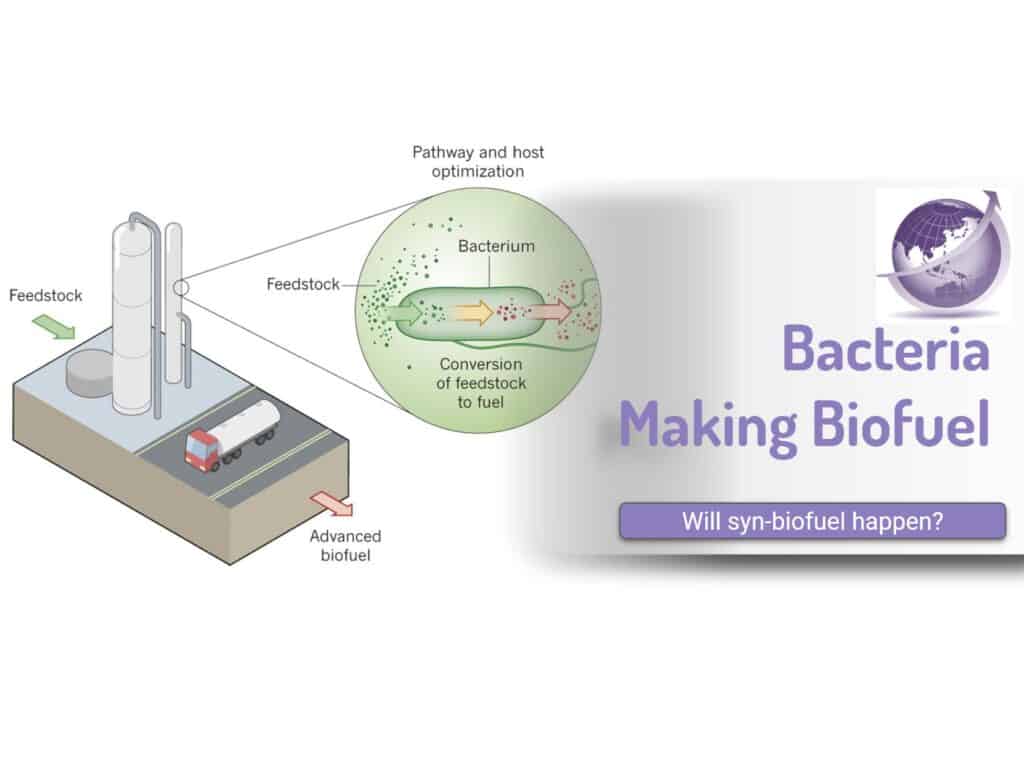Researchers at Berkeley Lab have created synthetic biofuels using bacteria with an energy density significantly higher than jet fuel. These new fuel candidate molecules, polycyclopropanated fatty acid methyl esters (POP-FAMEs), are composed of seven sets of cyclopropane rings. Rings of three carbon atoms bonded into triangular shapes, forces the bonds into a 60-degree angle. The strains of that sharp angle holds high potential energy that can be released during combustion.
Berkeley claim energy density of over 50 megajoules per litre (13,800 Wh/kg). Gasoline’s energy density is around 32 MJ/L, while common jet and rocket fuels top out around 35 MJ/L (12,000 Wh/kg)
Challenge – Cost
There has been no commercial production, and key element is the cost of the production system.

Decarbonising Flying
The aircraft industry is a major contributor to carbon emissions and while battery-powered aircraft are in development, long haul aircraft may need alternative energy to power flight.
R&D on Synthetic Biofuels Using Bacteria
There has been a long history of R&D using E. coli along with a huge investment by companies into production into synthetic proteins and fats. The use of bacteria to produce food proteins is a major disruption globally that many are unaware of. For a recent publication see Adegboye, M.F., Ojuederie, O.B., Talia, P.M. et al. Bioprospecting of microbial strains for biofuel production: metabolic engineering, applications, and challenges. Biotechnol Biofuels 14, 5 (2021). https://doi.org/10.1186/s13068-020-01853-2









